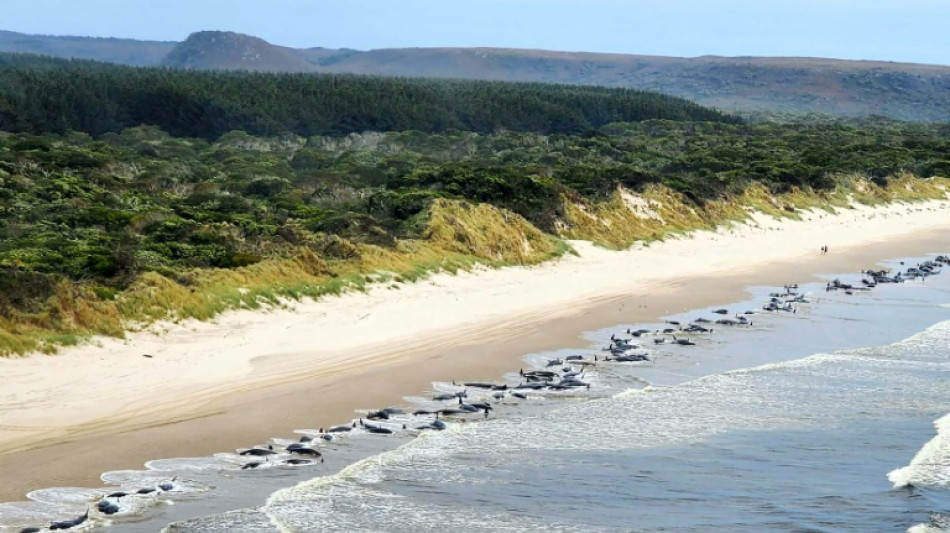
-
 US allows Nvidia to send advanced AI chips to China with restrictions
US allows Nvidia to send advanced AI chips to China with restrictions
-
Sinner in way as Alcaraz targets career Grand Slam in Australia

-
 Rahm, Dechambeau, Smith snub PGA Tour offer to stay with LIV
Rahm, Dechambeau, Smith snub PGA Tour offer to stay with LIV
-
K-pop heartthrobs BTS to begin world tour from April

-
 Boeing annual orders top Airbus for first time since 2018
Boeing annual orders top Airbus for first time since 2018
-
US to take three-quarter stake in Armenia corridor

-
 Semenyo an instant hit as Man City close on League Cup final
Semenyo an instant hit as Man City close on League Cup final
-
Trump warns of 'very strong action' if Iran hangs protesters

-
 Marseille put nine past sixth-tier Bayeux in French Cup
Marseille put nine past sixth-tier Bayeux in French Cup
-
US stocks retreat from records as oil prices jump
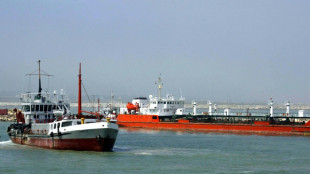
-
 Dortmund outclass Bremen to tighten grip on second spot
Dortmund outclass Bremen to tighten grip on second spot
-
Shiffrin reasserts slalom domination ahead of Olympics with Flachau win

-
 Fear vies with sorrow at funeral for Venezuelan political prisoner
Fear vies with sorrow at funeral for Venezuelan political prisoner
-
Pittsburgh Steelers coach Tomlin resigns after 19 years: club

-
 Russell eager to face Scotland team-mates when Bath play Edinburgh
Russell eager to face Scotland team-mates when Bath play Edinburgh
-
Undav scores again as Stuttgart sink Frankfurt to go third

-
 Fuming French farmers camp out in Paris despite government pledges
Fuming French farmers camp out in Paris despite government pledges
-
Man Utd appoint Carrick as manager to end of the season

-
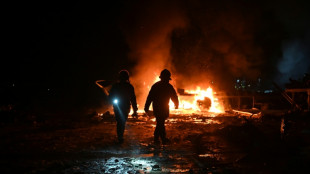 Russia strikes power plant, kills four in Ukraine barrage
Russia strikes power plant, kills four in Ukraine barrage
-
France's Le Pen says had 'no sense' of any offence as appeal trial opens

-
 JPMorgan Chase reports mixed results as Dimon defends Fed chief
JPMorgan Chase reports mixed results as Dimon defends Fed chief
-
Vingegaard targets first Giro while thirsting for third Tour title

-
 US pushes forward trade enclave over Armenia
US pushes forward trade enclave over Armenia
-
Alpine release reserve driver Doohan ahead of F1 season

-
 Toulouse's Ntamack out of crunch Champions Cup match against Sale
Toulouse's Ntamack out of crunch Champions Cup match against Sale
-
US takes aim at Muslim Brotherhood in Arab world

-
 Gloucester sign Springbok World Cup-winner Kleyn
Gloucester sign Springbok World Cup-winner Kleyn
-
Trump tells Iranians 'help on its way' as crackdown toll soars

-
 Iran threatens death penalty for 'rioters' as concern grows for protester
Iran threatens death penalty for 'rioters' as concern grows for protester
-
US ends protection for Somalis amid escalating migrant crackdown

-
 Oil prices surge following Trump's Iran tariff threat
Oil prices surge following Trump's Iran tariff threat
-
Fashion student, bodybuilder, footballer: the victims of Iran's crackdown

-
 Trump tells Iranians to 'keep protesting', says 'help on its way'
Trump tells Iranians to 'keep protesting', says 'help on its way'
-
Italian Olympians 'insulted' by torch relay snub

-
 Davos braces for Trump's 'America First' onslaught
Davos braces for Trump's 'America First' onslaught
-
How AI 'deepfakes' became Elon Musk's latest scandal

-
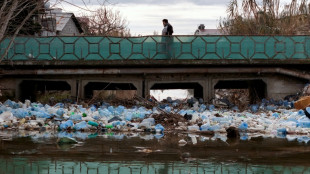 Albania's waste-choked rivers worsen deadly floods
Albania's waste-choked rivers worsen deadly floods
-
Cancelo rejoins Barca on loan from Al-Hilal

-
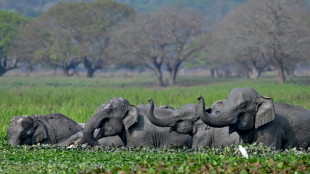 India hunts rampaging elephant that killed 20 people
India hunts rampaging elephant that killed 20 people
-
Nuuk, Copenhagen mull Greenland independence in Trump's shadow

-
 WHO says sugary drinks, alcohol getting cheaper, should be taxed more
WHO says sugary drinks, alcohol getting cheaper, should be taxed more
-
Arteta urges Arsenal to learn from League Cup pain ahead of Chelsea semi

-
 Davos elite, devotees of multilateralism, brace for Trump
Davos elite, devotees of multilateralism, brace for Trump
-
Spanish star Julio Iglesias accused of sexual assault by two ex-employees

-
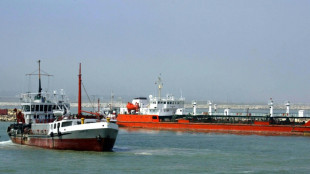 Trump's Iran tariff threat pushes oil price higher
Trump's Iran tariff threat pushes oil price higher
-
US consumer inflation holds steady as affordability worries linger
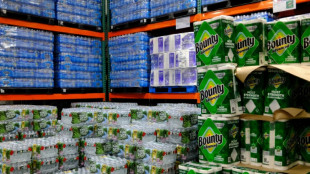
-
 Iran to press capital crime charges for 'rioters': prosecutors
Iran to press capital crime charges for 'rioters': prosecutors
-
Denmark, Greenland set for high-stake talks at White House
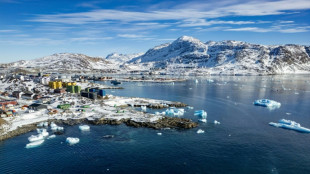
-
 Iranian goes on trial in France ahead of possible prisoner swap
Iranian goes on trial in France ahead of possible prisoner swap
-
Cold winter and AI boom pushed US emissions increase in 2025


Whale strandings: Five questions answered
The death of about 200 pilot whales at a Tasmanian beach has renewed questions about what causes such mass strandings and whether they can be prevented.
With the help of Karen Stockin, a whale stranding expert at New Zealand's Massey University, here are the answers to five key questions:
What causes mass strandings?
Scientists are still trying to work that out. They do know that there are multiple types of stranding events, with several explanations that can overlap. The causes can be natural, based on bathymetry -- the shape of the ocean floor -- or they can be species-specific.
Pilot whales and several smaller dolphin species are known to regularly mass strand, especially in the southern hemisphere, according to Stockin. In some instances, a sick whale headed towards shore and a full group unwittingly followed them.
Does it happen in certain areas?
There are a few global hotspots. In the southern hemisphere, Tasmania and New Zealand's Golden Bay have seen several instances, and in the northern hemisphere, the United States bay of Cape Cod, Massachusetts, is another hotspot.
In those areas, there are similarities between the topography of the beaches and environmental conditions. For example, Cape Cod and Golden Bay share a prominent narrow coastal land feature and shallow water with large tidal variations. Some people call such areas "whale traps" because of the speed at which the tide can recede.
Are strandings becoming more common?
Possibly. Strandings are natural phenomena and have been documented since the days of Aristotle. The health of the oceans has, however, deteriorated in recent decades.
Strandings could become more common as human use of the seas, shipping traffic and chemical pollution all increase.
Epizootic diseases -- outbreaks of sickness that affect a specific animal species -- could also lead to more. But there is still much to understand about the phenomenon, Stockin said.
Is climate change a factor?
Research on how climate change is affecting marine mammals is still in its infancy. Experts know that climate change can give rise to changes in prey and predator distribution. For some species, this may result in whales coming closer to shore.
For example, recent research based on current climate prediction models suggests that by the year 2050, the distribution of sperm whales and blue whales in New Zealand could vary considerably.
Can strandings be prevented?
Not really. As strandings occur for a multitude of reasons, there is no one-size-fits-all solution. But Stockin said that by better understanding whether and how human-induced changes are causing more mass strandings, solutions could be found.
F.AbuShamala--SF-PST



